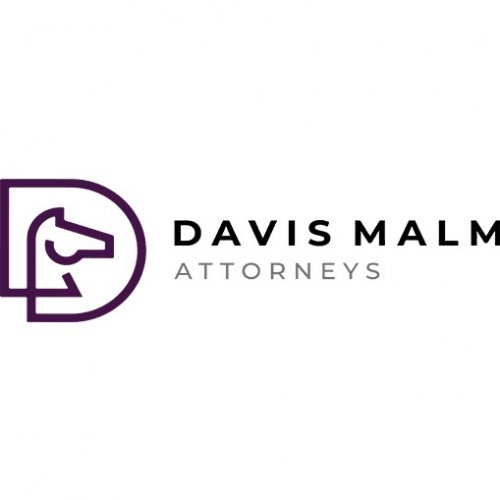Best Creditor Lawyers in Boston
Share your needs with us, get contacted by law firms.
Free. Takes 2 min.
List of the best lawyers in Boston, United States
About Creditor Law in Boston, United States:
Creditor law in Boston, United States refers to the legal framework that governs the rights and obligations of creditors and debtors. It involves the legal processes and remedies available to creditors when dealing with unpaid debts. Boston has specific laws and regulations that protect the rights of both creditors and debtors, and it is important to understand these laws to navigate any creditor-related issues effectively.
Why You May Need a Lawyer:
There are several common situations where you may require legal help in the field of creditor law in Boston. These may include:
- Debt collection: If you are a creditor seeking to collect unpaid debts, a lawyer can help you understand your rights, navigate the legal procedures, and pursue appropriate actions to recover the debt.
- Breach of contract: If a debtor has violated the terms of a contract, you may need a lawyer to help you enforce the contract, file a lawsuit, or negotiate a settlement.
- Bankruptcy: If you are a creditor and your debtor files for bankruptcy, a lawyer can guide you through the complex bankruptcy proceedings and help protect your interests.
- Debt negotiation: If you are a debtor struggling with overwhelming debt, a lawyer can negotiate with creditors on your behalf, help you explore options like debt settlement or bankruptcy, and protect your rights.
Local Laws Overview:
These are the key aspects of local laws in Boston that are particularly relevant to creditor issues:
- The Massachusetts Fair Debt Collection Practices Act (MDCPA) prohibits unfair and deceptive debt collection practices, ensuring that creditors treat debtors fairly.
- The Massachusetts Consumer Protection Act (MCPA) provides additional consumer protections, including regulations on deceptive or unfair trade practices, and unfair debt collection.
- The Massachusetts Uniform Commercial Code (UCC) governs the sale of goods, negotiable instruments, and secured transactions.
- The Massachusetts Bankruptcy Code outlines the rules and procedures for bankruptcy cases filed within the state.
Frequently Asked Questions:
1. Can a creditor garnish my wages in Boston?
Yes, in certain circumstances, a creditor can garnish your wages to collect a debt. However, there are limitations on how much can be garnished and certain types of income are exempt from garnishment.
2. How long does a creditor have to file a lawsuit to collect a debt in Boston?
In Massachusetts, the statute of limitations for most types of debt is 6 years. This means that creditors generally have 6 years from the date of the last payment or acknowledgement of the debt to file a lawsuit.
3. What is the role of the Fair Debt Collection Practices Act (FDCPA) in Boston?
The FDCPA is a federal law that prohibits abusive, deceptive, and unfair debt collection practices. It applies to debt collectors who are collecting debts on behalf of others and provides additional protections to consumers.
4. Can filing for bankruptcy help me eliminate my debts in Boston?
Bankruptcy can provide relief and help you eliminate certain types of debts. However, the specific circumstances of your case and the type of bankruptcy you file will determine which debts can be discharged.
5. Do I need a lawyer to negotiate with my creditors in Boston?
While it is possible to negotiate with creditors without a lawyer, having legal representation can be valuable. A lawyer can help you navigate the negotiation process, protect your interests, and ensure that any agreements reached are legally binding.
Additional Resources:
If you need further assistance or information regarding creditor law in Boston, consider reaching out to the following resources:
- Massachusetts Attorney General's Office - Provides information on consumer protection and debt collection practices: www.mass.gov/ago
- Massachusetts Legal Aid - Offers free legal services to low-income individuals dealing with debt and creditor issues: www.masslegalservices.org
- Boston Bar Association Lawyer Referral Service - Connects individuals with qualified lawyers who specialize in creditor law: www.bostonbarlawyer.org
Next Steps:
If you require legal assistance in the field of creditor law in Boston, here's how you can proceed:
1. Assess your specific creditor-related issue and determine the type of legal assistance you require.
2. Research and contact experienced lawyers or legal firms specializing in creditor law in Boston.
3. Consult with a lawyer to discuss your situation, receive advice, and understand your available legal options.
4. Provide all relevant documentation and information to your lawyer to support your case.
5. Work closely with your lawyer to develop a strategy and take appropriate actions to resolve your creditor-related issue.
Lawzana helps you find the best lawyers and law firms in Boston through a curated and pre-screened list of qualified legal professionals. Our platform offers rankings and detailed profiles of attorneys and law firms, allowing you to compare based on practice areas, including Creditor, experience, and client feedback.
Each profile includes a description of the firm's areas of practice, client reviews, team members and partners, year of establishment, spoken languages, office locations, contact information, social media presence, and any published articles or resources. Most firms on our platform speak English and are experienced in both local and international legal matters.
Get a quote from top-rated law firms in Boston, United States — quickly, securely, and without unnecessary hassle.
Disclaimer:
The information provided on this page is for general informational purposes only and does not constitute legal advice. While we strive to ensure the accuracy and relevance of the content, legal information may change over time, and interpretations of the law can vary. You should always consult with a qualified legal professional for advice specific to your situation.
We disclaim all liability for actions taken or not taken based on the content of this page. If you believe any information is incorrect or outdated, please contact us, and we will review and update it where appropriate.








